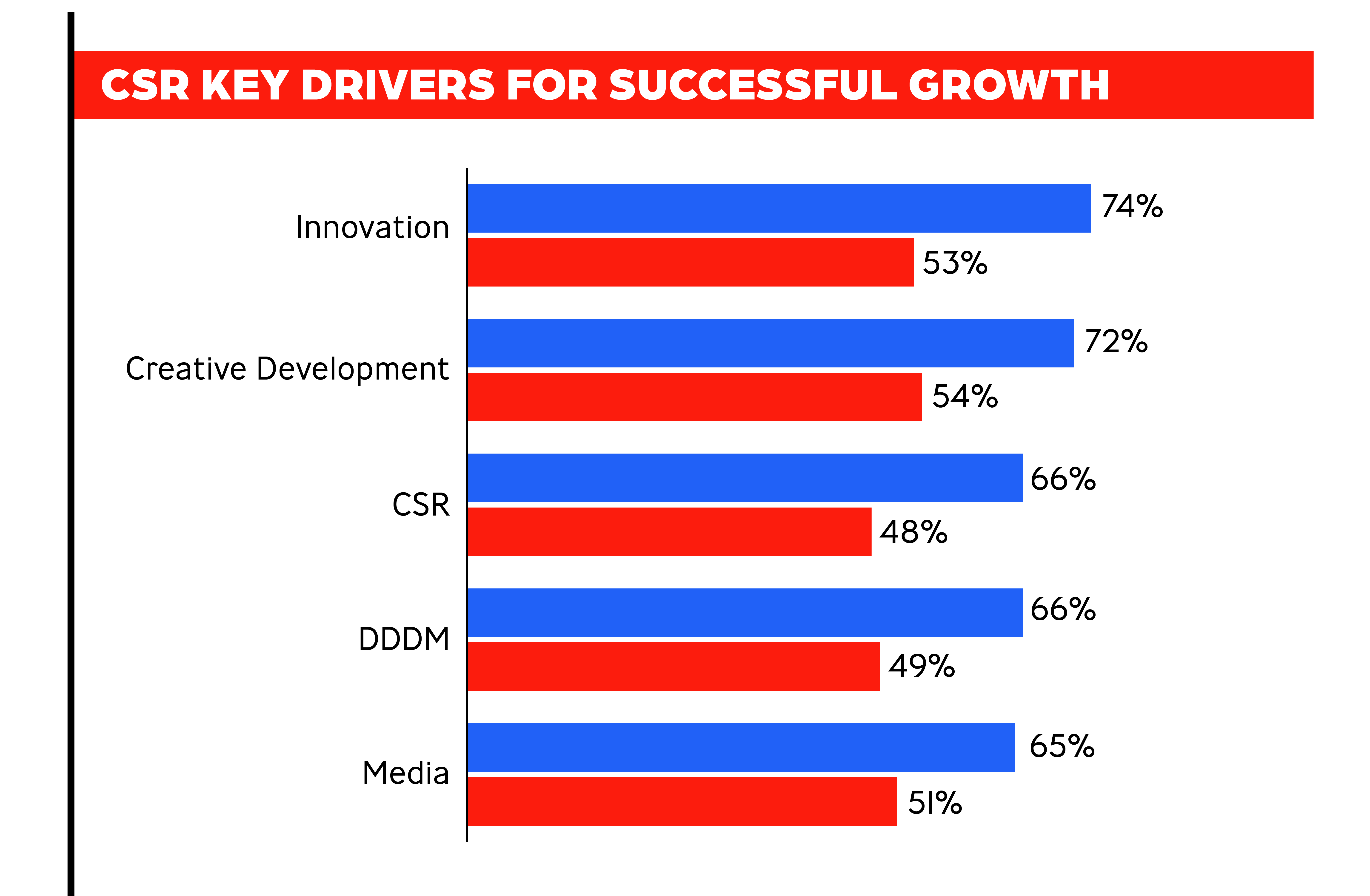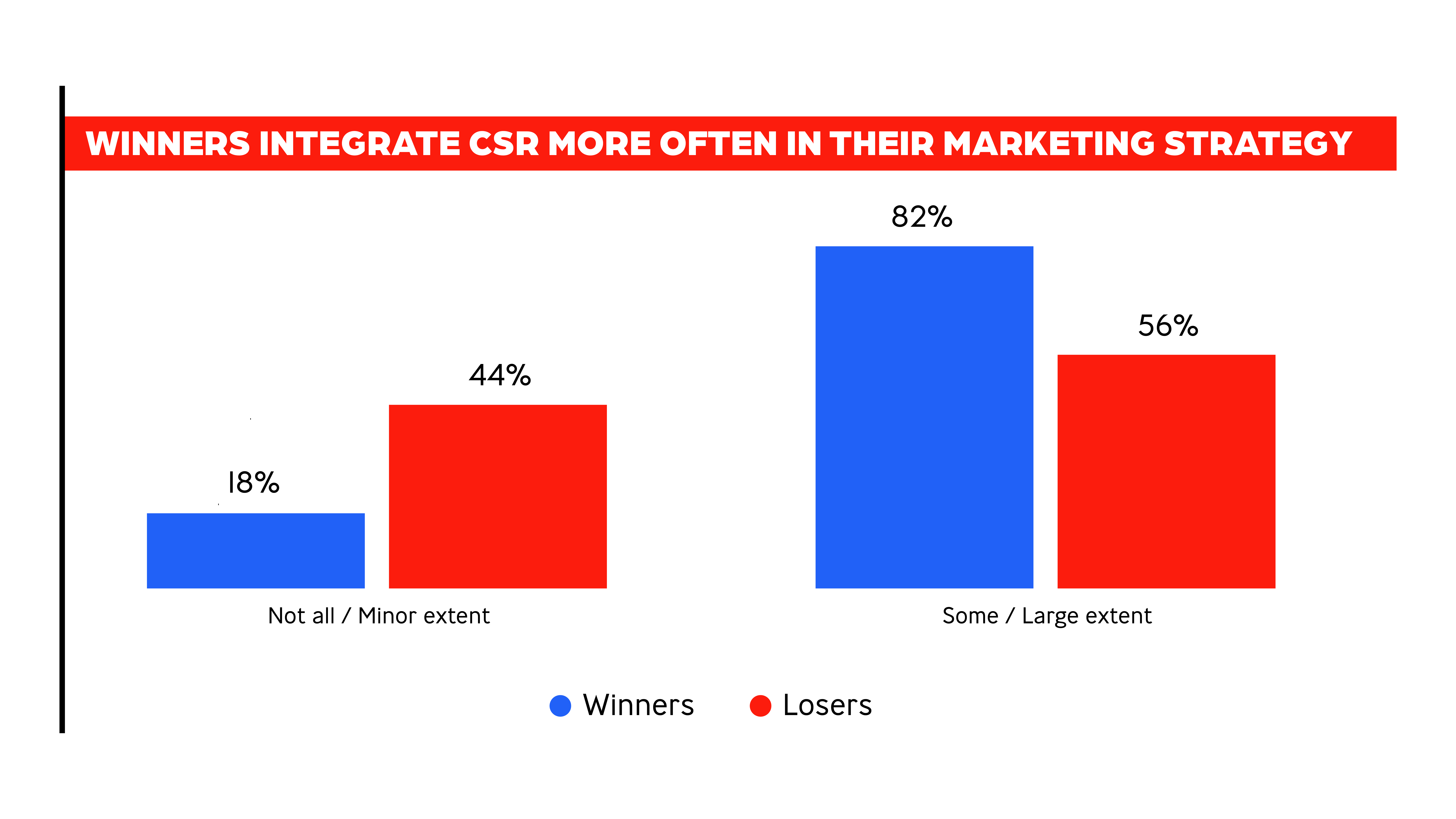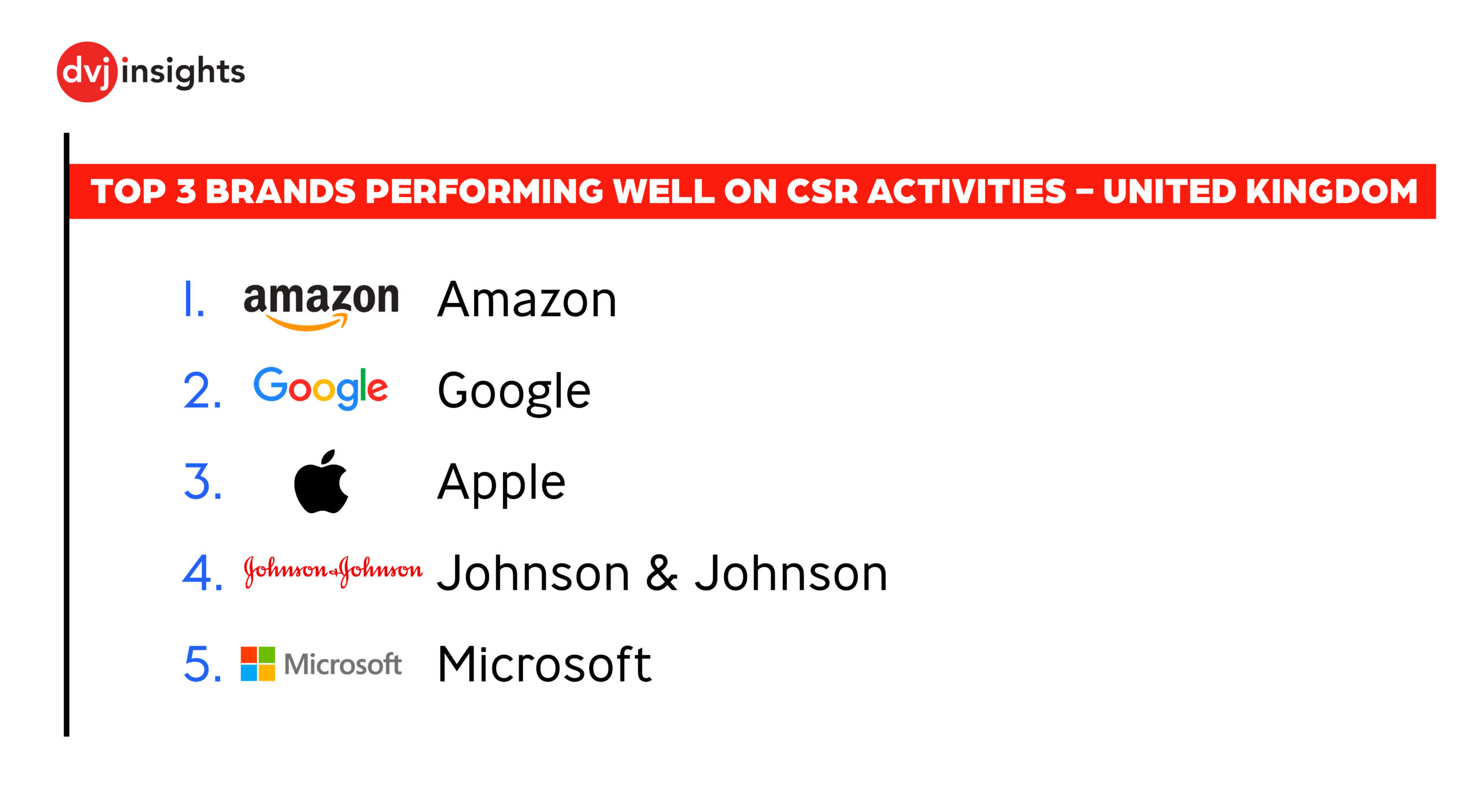Winning brands integrate CSR more often in their marketing strategy
Published on 08 05 2023Corporate Social Responsibility (CSR) is becoming increasingly important. We define it as doing something good for society, such as investing in the community, producing more environmentally friendly products, or taking good care of employees. Whereas marketing has always been focusing on providing value to customers and maximizing sales and growth, companies must now carefully balance their growth goals with the need to pursue sustainability. Which CSR elements do consumers believe are important when purchasing products, and what distinguishes winning companies (winners) and less performing companies (losers) when it comes to the role of CSR in growing your brand successfully? That all is revealed in DVJ’s annual Brand Growth Study, this year focusing on CSR, which questioned 3,000 consumers and 2,900 marketers from across Europe.
Half of the European companies have a CSR strategy
Overall, 56% of the firms have already defined their CSR strategy, and additionally, based on the company’s success, winners have defined CSR initiatives significantly more often than losers (65% versus 49%). Another finding revealed that CSR strategies are more common in B2B firms (63%) than in B2C firms (51%). In general, the increasing importance of CSR can be proven by the fact that 40% of firms pay now (much) more attention to CSR than two years ago while for 42% of all firms, the attention remains the same.
Figure 1: Key CSR drivers for successful growth

Top 5 CSR strategies affecting purchase decisions
For 75% of consumers, it is very important that the firm they buy products from engages in CSR activities. Consumers ranked paying fair wages, producing environment-friendly, producing less waste, taking care of employees’ work-life balance, and recycling as the most important valued initiatives (respectively). On the other hand, marketers across Europe mostly indicate that taking care of employees’ work-life balance, paying employees fair wages, and producing environmentally friendly and recycling are part of their firm´s CSR strategy.
Figure 2: Top 5 CSR Strategies in purchase decisions

ACT BUT DON´T FORGET TO COMMUNICATE IT
According to our research, 82% of successful brands incorporate CSR strategy into their marketing communication to a large extent, whereas 44% of “losers” integrate CSR to a minor extent or not at all, which could be one of the reasons for low performance. Overall, having a CSR strategy is beneficial not only to the company but also to the environment; however, part of the success is also displaying doing good to the public by integrating them into marketing communication.
Figure 3: Winners vs Losers

Which firms perform well on CSR and why?
Amazon, Google, Ikea, Microsoft, and Apple all have one thing in common: They are not only well-known names around the world, but they also perform well at CSR in the eyes of both consumers and marketers in Europe. The analysis also focused on the ranking of the companies performing well at CSR per researched country – the United Kingdom, Sweden, Germany, and the Netherlands.
Figure 4: Top 5 performing brands at CSR – the UK

CONSUMER SATISFACTION IS THE MOST IMPORTANT POSITIVE EFFECT OF A STRONG CSR STRATEGY
Without a doubt, there are several positive effects of CSR. However, if marketers had to pick the most important one resulting from a strong CSR strategy, the most common one would be customer satisfaction (14%). In addition, this might differ based on the type of business relationship, B2B firms would choose customer satisfaction significantly less often (10%) than B2C firms (19%).
Download the report for complete insights
Read more interesting insights about CSR and the way it is perceived by consumers and marketers by downloading DVJ´s Brand Growth Study full report.
About the study
DVJ Insights conducts annual research among marketers to better understand the drivers for Brand Growth. The goal is to learn how can marketing best organize itself for growth. The study was conducted for the 7th time among over 3,000 consumers in 4 countries, and 2,300 marketing- and insights experts in 11 European countries. In addition to this quantitative research, DVJ Insights conducts dozens of vision interviews throughout the year with Chief Marketing Officers and Insights Managers about what is going on in the market and the challenges they face. These vision interviews are used to understand the reasons behind the findings. The most important results of the study are presented at the annual Brand Growth Event. All presentations will be available to stream on the DVJ website soon.